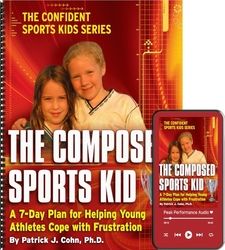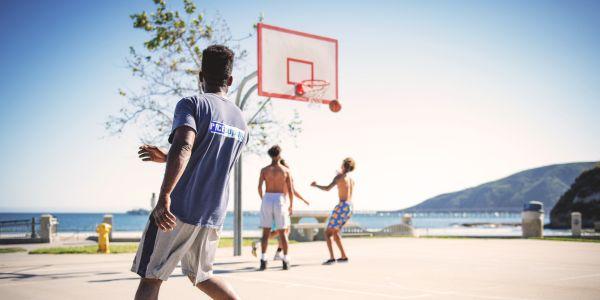How Athletes’ Confidence is Fragile
Athletes can feel confident in their ability to successfully perform in some circumstances and not others.
For example, a basketball player may feel more confident when shooting free throws early in a basketball game than when on the foul line in the fourth quarter of a tight game.
A gymnast may have more confidence in her ability to nail her routine on the balance beam in a dual meet than when competing in conference championships.
A tennis player may feel more confident closing out a match against a similarly ranked opponent than when competing against a rival. Why are athletes more confident in some situations rather than others?
Athletes are more confident when they feel comfortable competing in certain situations.
When young athletes are comfortable in a given situation, they feel less pressure and anxiety. They are more focused on the task at hand and not distracted by counter-productive thoughts such as, “What if I miss this shot?”
“What if I cause my team to lose?” or “What if I mess up and embarrass myself?”
How can sports kids develop confidence and a level of comfort to successfully perform in crucial moments of a competition?
Fear of the unknown creates anxiety. When young athletes are inexperienced in a certain circumstance, they feel uncomfortable and anxious.
They gain comfort by making an unknown known. In other words, the more they expose themselves to pressure situations, the better they will perform in similar circumstances in the future.
Sports kids can gain more experience competing under pressure in two ways. They can practice under pressure and visualize themselves successfully performing in critical moments of a competition.
They can practice under pressure by creating pressure scenarios during training sessions. For example, they could be on the free-throw line late in a tied practice game, and have teammates yelling as if they were playing in front of rowdy fans.
They can also visualize specific scenarios in detail, such as “seeing” themselves sinking two free throws late in a game or hitting a buzzer-beater in a playoff game.
Both strategies help kids develop a sense of comfort and confidence while competing under pressure.
Take, for example, University of Iowa basketball player Caitlin Clark. Clark nailed a shot from near half-court at the buzzer to help the fourth-ranked Hawkeyes survive an upset against Michigan State.
Clark was confident as she released the ball, not just because she’s a talented shooter.
“We practice those plays every single day in practice,” Clark said. “That’s what we run every single time: Get Hannah the ball, let me create with some space. They contested it pretty well, honestly, so lucky it went down.”
There is no luck when it comes to performing under pressure. Peak performance under pressure is a trainable mental skill that any athlete can add to a mental game repertoire.
Young athletes should spend 5 to 10 minutes each day practicing under pressure. They can make this a fun routine challenge with their teammates after a training session.
Remember, repetition and comfort translates to confidence.
Related Articles on Kids’ Mental Game:
*Subscribe to The Sports Psychology Podcast on iTunes
*Subscribe to The Sports Psychology Podcast on Spotify
The Composed Sports Kid

“The Composed Sports Kid” audio and workbook digital download program for young athletes and their parents or coach helps kids cope with frustration and anger in sports. Help your sports kids learn how to manage expectations and let go of mistakes so they can keep their head in the game.
The Composed Sports Kid system is really two programs in one–one program to train parents and coaches how to help their kids practice composure, and one program that teaches young athletes–ages 6 to 13–how to improve composure, let go of mistakes quickly, have more self-acceptance, and thus enjoy sports more!

